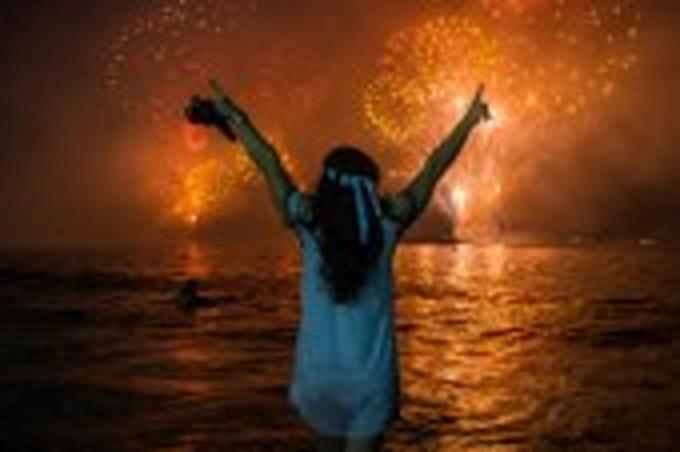The city of Rio de Janeiro has finally decided to suspend its massive New Year’s party before the omicron type of coronavirus arrives in Brazil, a measure taken by most of the country’s capitals that adds doubts about the celebration of the famous Rio carnival. .
“In this way, we will cancel the official celebration of the New Year’s Eve party in Rio,” Mayor Eduardo Paes announced on Twitter on Saturday.
He added that he had “sadly” taken the decision to cancel the traditional celebrations with music and fireworks, which every year gather about three million people on Copacabana beach, as they did not have “the guarantees of the health authorities”, frightened by the arrival of the omicron variant in Brazil.
Currently, there are six confirmed cases of the new strain in Brazil: three in São Paulo, two in Brasilia and one in Porto Alegre.
The mayor added, “We respect science. Because there are divergent opinions among science committees, we will always stick to the most restrictive opinions. The municipal committee says it can be done. The state committee says no. Then it can’t.” After a week of discussions between the authorities of Rio de Janeiro.
On Thursday, Paes expanded health passport requirements to other sectors, adding a requirement to enter beauty salons, restaurants, bars and hotels.
Although there are no fireworks at Copacabana Beach, “the city is still charming, wonderful, receptive, beautiful, and wonderful. Vaccinated tourists will be most welcome in Rio de Janeiro,” Paes later said at a press conference.
It was São Paulo, the most populous city in Brazil, that on Friday canceled the year-end festivities, which gathered two million people on the famous Paulista Avenue.
In total, a score of capitals (out of 27), including Brasilia and Salvador, made the same decision, which led to significant economic losses.
“I hope the carnival will not be canceled”
As cases of the omicron variant multiply in the world and the major Brazilian cities announce preventive measures, doubts are growing about the achievement of the famous carnival in Brazil, especially in Rio de Janeiro, which is considered one of the largest festivals in the world. planet.
“The Carnival is three months away (…). I’m always following the flag. And I hope the Carnival won’t be canceled either.”
The mayor has spent weeks adapting this party’s contract, between February 25 and March 1, to the epidemiological situation in Brazil, which has improved significantly in recent months along with the progress in vaccination (63% of the 213 million Brazilians have been fully vaccinated).
“I think it’s fair to cancel the carnival and cancel the end of the year, because after everything that’s happening, the disease is still there and it’s complicated for Brazil,” street vendor Ismael Moreira dos Santos, 59, told AFP on Copacabana beach. .
Until otherwise noted, samba schools in Rio de Janeiro are continuing their training and development of thousands of distinctive giant costumes, masks and floats that were no longer suspended last year due to the coronavirus.
The Scientific Committee of the nine northeastern states of Brazil on Friday recommended that carnival celebrations not be held in that region, among which there are many famous celebrations, such as the celebrations of Salvador, Recife and Olinda.
As a result of the omicron system, Brazil closed its air borders from Monday to six African countries (South Africa, Botswana, Eswatini, Lesotho, Namibia and Zimbabwe).
Brazil has accumulated more than 615,000 deaths since the beginning of the epidemic, and it is the second country with the highest number of deaths in absolute numbers after the United States.

“Music buff. Social media lover. Web specialist. Analyst. Organizer. Travel trailblazer.”

:quality(85)/cloudfront-us-east-1.images.arcpublishing.com/infobae/TEQF6EONZRFGLLLDIDD4L2O4EE.jpg)

:quality(75)/cloudfront-us-east-1.images.arcpublishing.com/elcomercio/XU32LRAEZFDDPNVHLFU3CKVBYY.jpg)



More Stories
Sheinbaum, Galvez, Mainz campaign wrap-up, news and more
Sheinbaum and Mainz’s CDMX campaign wraps up: Road Alternatives and Street Closures
Ortega attacks Humberto Ortega and declares him a “traitor to the country”